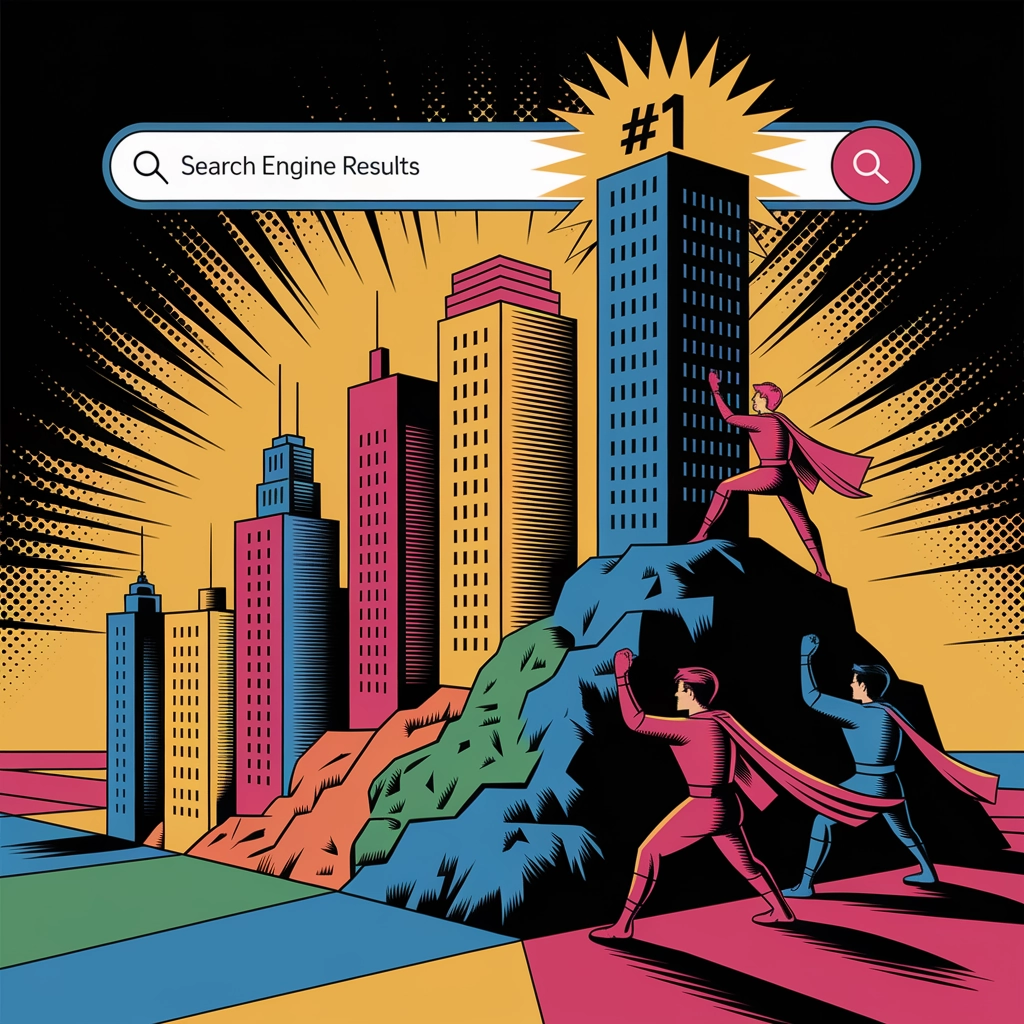Let's cut straight to the chase: Yes, AI-generated content can be good for SEO. But there's a catch.
Think of AI content as getting you 80% of the way there. It's like having a skilled ghostwriter who can produce quality content at scale – but still needs your expertise and direction to cross the finish line.
The burning question business owners isn't whether AI content will tank your rankings (it won't), but rather how to leverage it effectively while avoiding potential pitfalls.
What Google Actually Says About AI Content
Google's stance has evolved significantly. In 2023, they updated their guidance to clarify that they don't automatically penalize AI-generated content. Here's what they actually care about:
| Google's Content Priorities | Why It Matters |
|---|---|
| Helpfulness | Content must solve user problems or answer questions |
| Originality | Adding unique perspectives or information |
| Experience | Demonstrating first-hand knowledge |
| Expertise | Showing depth of understanding |
| Trustworthiness | Accuracy and credibility of information |
Notice what's missing? "Written by a human" isn't on the list.
Google's systems are designed to reward high-quality content that demonstrates E-E-A-T (Experience, Expertise, Authoritativeness, and Trustworthiness), regardless of how it was produced.
The 80% Ready: What AI Content Gets Right
AI-powered content tools have become remarkably good at:
- Drafting comprehensive, well-structured content that follows SEO best practices
- Researching and synthesizing information from multiple sources
- Generating keyword-rich titles and meta descriptions
- Creating content that matches search intent
- Maintaining consistency in voice and tone
Our content team regularly uses Penny, our AI blog writer, to generate fully-formed draft articles that hit all these marks. The efficiency gains are stunning – what used to take days now happens in minutes.

The Missing 20%: Where Human Input Remains Essential
Despite these impressive capabilities, AI content still needs human oversight to truly excel for SEO:
AI tools can write about anything, but only humans truly know what's worth writing about.
The missing 20% includes:
1. Strategic Direction
AI doesn't understand your business objectives, competitive landscape, or audience needs unless you tell it. The most critical SEO decisions – like what topics to target and why – remain firmly in human hands.
2. Personal Experience and Unique Insights
AI can summarize existing knowledge but can't share personal experiences or generate truly novel insights. These elements are increasingly important for E-E-A-T.
When working with Penny, we've found that spending just 15 minutes providing unique perspectives and examples transforms good content into great content.
3. Fact-Checking and Accuracy
While AI has improved dramatically, hallucinations (confidently stated inaccuracies) still occur. A human review for factual accuracy is non-negotiable.
4. Nuance and Cultural Sensitivity
AI may miss important nuances or cultural contexts that could alienate readers or undermine credibility.
Can Google Detect AI Content? Does It Matter?
Here's what we know: Despite claims from various detection tools, reliably identifying AI-generated content remains challenging – even for Google.
This is especially true for content that combines AI drafting with human editing. The blended approach creates a signature that's effectively indistinguishable from purely human-written content.
What matters isn't whether content was written by AI, but whether it delivers value to your audience and meets Google's quality standards.
Google's John Mueller has repeatedly emphasized that their focus is on content quality, not how it was produced. This aligns with Google's fundamental mission: connecting users with the most helpful information.
How to Use AI for SEO Success: The Penny Approach
At Marblism, we've refined a process for creating SEO-effective content using our AI blog writer, Penny. Here's how it works:
- Strategic Planning: Identify topics based on keyword research, searcher intent, and business goals
- Receive daily ideas: Penny will send you daily fresh ideas of blog titles to engage your audience
- AI-Powered Drafting: Generate comprehensive, SEO-optimized first drafts
- Human Enhancement: Add unique insights, examples, and fact-check for accuracy
- Polishing: Refine for brand voice, readability, and engagement
- Publishing and Monitoring: Track performance and update as needed

The magic happens in steps 4 and 5. This is where you transform good content into great content with minimal time investment. Typically, we find that 5-10 minutes of human input per article is sufficient to elevate AI-generated content to publication quality.
Real Results: The Long Game of AI-Assisted SEO
SEO success requires consistency and patience. Based on our experience and client data, here's what you can expect when using AI tools like Penny:
Month 1: Initial indexing, minimal traffic increases
Months 2-3: Growing visibility, modest traffic improvements
Months 4-6: Significant ranking improvements, noticeable traffic gains
Months 7+: Compounding returns as your content authority builds
The key is commitment to the process. Publishing 3 high-quality, AI-assisted articles per week for at least 3 months creates momentum that's hard to stop.
One client using our approach saw their organic traffic increase by 247% in just 6 months – all while reducing their content production costs by over 60%.
Best Practices for SEO-Effective AI Content
To maximize the SEO value of AI-generated content:
- Think like your customers: What are they actually searching for? What questions do they need answered?
- Cover adjacent topics: Don't just target obvious keywords. Explore related areas that provide additional value.
- Add unique value: Include insights from your experience that can't be found elsewhere.
- Use data and examples: Concrete evidence builds credibility with both readers and search engines.
When our content team follows these practices with Penny, we consistently see content ranking on page one within 2-3 months, even in competitive niches.

The Hybrid Approach: Working With AI, Not Against It
The most successful content strategies today embrace a hybrid approach where AI handles the heavy lifting of content production while humans guide strategy and add unique value.
The future belongs not to those who reject AI, nor to those who rely on it blindly, but to those who learn to collaborate with it effectively.
This approach allows for scaling content production without sacrificing quality – the holy grail for SEO.
Building Your AI-Enhanced SEO Strategy
If you're ready to leverage AI for SEO success, start with these steps:
- Audit your current content performance to identify gaps and opportunities
- Develop a sustainable publishing cadence (remember: 3 posts weekly for 3+ months)
- Choose the right AI tool that fits your workflow and content needs
- Create a review process to ensure quality and add unique value
The combination of AI efficiency and human creativity creates a powerful engine for SEO growth that's difficult for competitors to match.
To summarize, AI-generated content can absolutely be good for SEO – when used strategically and enhanced with human expertise. The 80/20 approach allows you to create more content without sacrificing quality.
Google doesn't care whether AI helped create your content. They care whether your content helps their users. Focus on delivering value, and the rankings will follow.
By embracing tools like Penny and establishing a consistent publishing rhythm, you can build a content machine that drives sustainable organic traffic growth for years to come.
The future of SEO isn't choosing between human or AI content – it's learning how to combine the strengths of both to create something greater than either could achieve alone.











